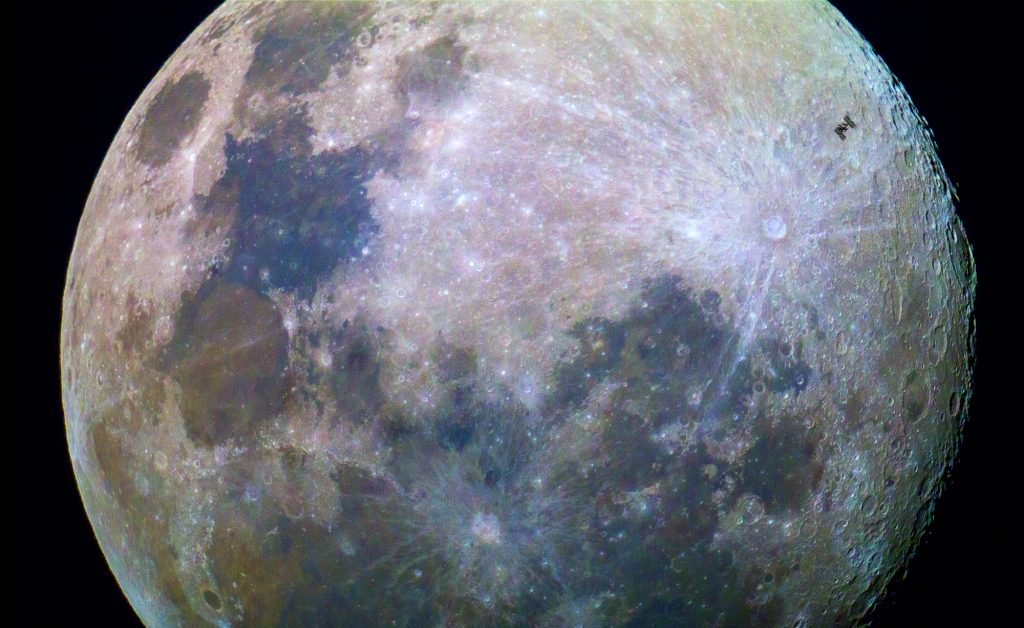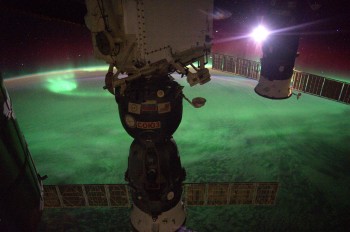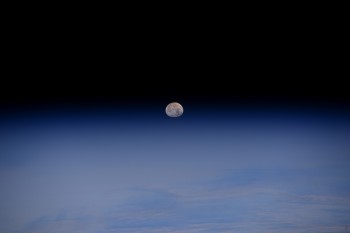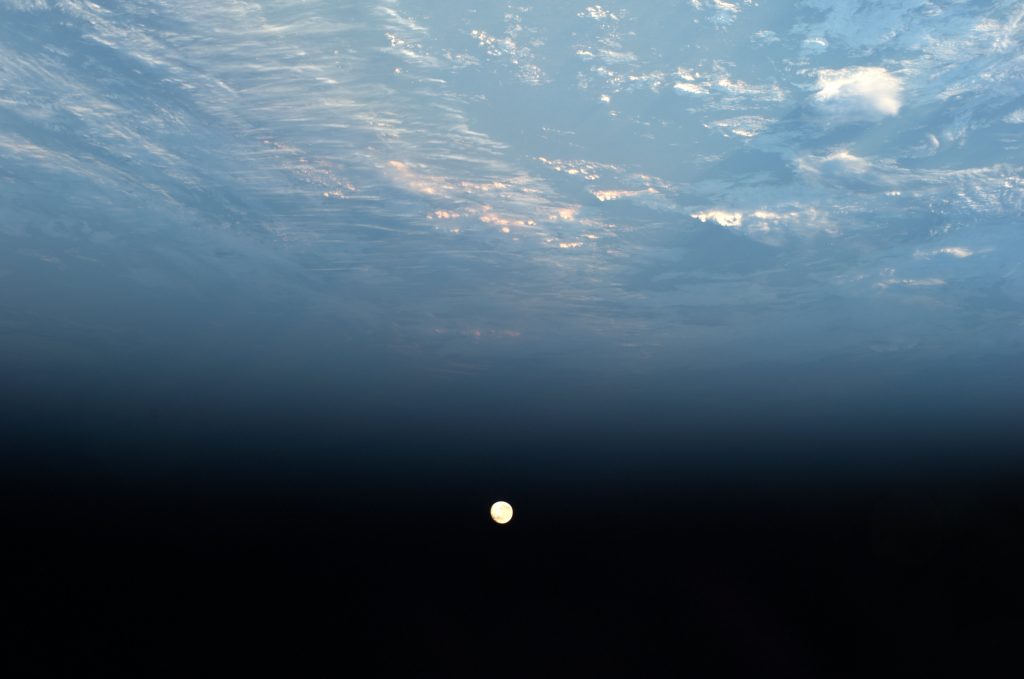ESA’s vision for near-future lunar exploration will soon be shared at the Symposium ‘Moon 2020-2030: A new Era of Human and Robotic Exploration’. As part of this Symposium, ESA is organising the ESA Moon Challenge. This international contest challenges University students worldwide to contribute to lunar activities and prepare for the next stop in exploration.
ESA’s vision for near-future lunar exploration will soon be shared at the Symposium ‘Moon 2020-2030: A new Era of Human and Robotic Exploration’. As part of this Symposium, ESA is organising the ESA Moon Challenge. This international contest challenges University students worldwide to contribute to lunar activities and prepare for the next stop in exploration.
Humans are explorers. Just as islanders need to understand the ocean that surrounds them in order to survive, we Earthlings need to understand the space that surrounds our own little blue island in a vast and hostile universe. We have a responsibility towards future generations to explore our cosmic environment.
Our closest companion, the Moon, was most likely ripped out of Earth by a cosmic projectile. That makes it a vital archive of information on our own past, and a reminder of the dangers coming from out there. We can see it as our 8th continent. But it is much more than that – just as we humans learn on the International Space Station how to live in space for long periods, we will learn from the Moon how to survive and conduct research on other planets. Furthermore, the Moon is our springboard to yet another interesting neighbour: Mars. Without such a springboard, situated no more than a couple of days journey away, the year-long flight to Mars would be much more difficult.
On several occasions in the last years, humanity failed until the last moment to discover asteroids that closely missed Earth. Some of them we only noticed after they had already passed between the Earth and the Moon. Despite our big Earth-based telescopes we still have vulnerable blind spots. So maybe the next asteroid on a collision course with Earth will be spotted by a telescope on the far side of the Moon, where it is not blinded by an atmosphere, nor Earth’s constant chatter of radio emissions.
A long-duration international research mission to the Moon would by far surpass all lunar exploration missions to date, and would allow extensive exploration activities and science programs. Such a mission would not only be the next big step for humankind, but also the greatest mission of discovery and adventure that we humans will have undertaken in a very long time. It would bring us together again by doing something fascinating, big and “impossible”.
On such a mission the nationality of the astronauts ceases to be of significance. Humanity needs to work together, finding both the resolve and the courage to send out a small number of us as pioneers. It is in the vital interest of all countries that depend on their advanced technological capabilities to be part of this effort. It is therefore vital for Europe not to miss out on such an opportunity for international cooperation. Furthermore, to share such an important common goal would strongly contribute to international stability, in much the same way as the International Space Station does today.
From “Blue Dot“ to “No Dot“
During my space mission I was able to observe that only a few days after leaving our planet, we cease to be Germans, Europeans, Russians, Chinese or Americans. We instead begin to see ourselves simply as inhabitants of planet Earth. As an ESA astronaut and geophysicist, I would, of course, be honoured and fascinated by the prospect of being able to stand on the edge of a lunar crater and having the opportunity to explore it. This is because with every secret the Moon reveals to us, we learn something new about Earth as well. From the near side of the Moon, our home planet resembles a little blue marble in space, whereas from the far side of the Moon it is eternally hidden from view. I am sure that for us humans, the experience of losing sight of our home planet altogether will serve as an immensely valuable lesson on what we are, which is possibly even critical for our survival.








Discussion: 9 comments
Guten Tag lieber Alexander Gerst,
ich habe ihre Aussagen zu ihren Erfahrungen im All gesehen und war sehr berührt davon. Vor allem der Overview-Effekt, die Erfahrung des Einsseins der Erde und der Menschheit haben mich bewegt.
Ich werde nächste Woche einen Workshop für eine Gruppe von Menschen moderieren, die viel mit Politik zu tun haben und Entscheidungsträger sind. Ich ich gerne ihren Blick weiten und ihnen von Ihren Einsichten erzählen bevor der Workshop startet, damit sie sozusagen die Erde im Bewusstsein behalten. Um ihnen noch authentischer von ihren Erfahrungen zu berichten, würde ich Ihnen gerne eine Frage dazu stellen.
Ist es möglich Sie direkt zu kontaktieren?
Das wäre toll!
Lieben Gruß sendet Birgit Permantier
Mein GO haben Sie! :-)
Wollen wir mal lieber nicht an ein Szenario mit einem Asteroiden denke wäre un cool
Sehr geehrter Herr Gerst, 30 Jahre jünger ind mit dem Fachwissen von 2015 würde ich sagen, okay, wann starten wir ;-) ??
Ich wünsche Ihrer und den zukünftigen Generation das, was Sie geschrieben haben. Genau dieses Bewusstsein, dass wir Menschen sind und nicht Bewohner irgendwelcher Staaten. Genau diesen Entdeckergeist, welcher vor Jahrhunderten zur Entdeckung neuer Kontinente geführt hat.
Diesen Geist wünsche ich mir für die Zukunft. Obwohl ich wohl den startenden Raketen nachschauen werde – mit einem weinenden und einem lachenden Auge ;-)
Mit besten Grüßen
Jochen Roth
Da ich glaube, dass trotz aller Umweltmassnahmen die Überbevölkerung unsere Erde an die Grenze bringen wird, halte ich die Erforschung unserer nächsten Himmelkskörper für unabdingbar. Der Mond liegt in greifbarer Nähe. Jetzt, wo man grosse Wasservorkommen dort vermutet … Logistisch und psychisch sicher eine grosse Herausforderung, aber die Forschungsstation Concordia der ESA in der Antarktis ist im Winter ja auch sehr isoliert. Deshalb: Auf den Mond – für den Weltfrieden!
Beim lesen sind mir auch viele Dinge durch den Kopf gegangen. Daß nach ein paar Mondlandungen diese Forschung eingestellt wurde finde ich sehr schade. Die Erforschung des Weltraums finde ich viel wichtiger als die Kriege auf unserer kleinen blauen Murmel.
Ich hoffe daß sich die Nationen dazu durchringen können diese Forschung weiterzuführen, und es würde mich freuen dann wieder so interesante Berichte von astro_alex zu lesen.
Respekt vor deinem Mut sich für eine solche “Neulands-Mission” auszusprechen…Wenn der Entdeckungswille keine Grenzen kennt :)
Hallo Herr Gerst,
Sie sprechen uns aus der Seele! Ich hoffe wir können mit unserer Roboter Mission zum Mond dazu beitragen das ihr Traum wahr wird.
Michael
Part-Time-Scientists
Ich habe mal einen seeehr langen Artikel über die Vor- und Nachteile einer Mondlandung gelesen. Es gibt wohl einige sehr bekannte Fürsprecher. In dem Artikel ging es aber um den großen Sprung zum Mars und dass der Mond eigentlich nur aufhält. Finanziell.
Es ist schon eine Ironie, dass die Besiedelung des Weltalls von sowas irdischem wie Geld abhängt. Täglich wandern fast ein Dutzend Billionen Dollar um die Welt, in Finanztransaktionen. Und da sind keine 100 Milliarden für Mond- UND Marsmission drin?